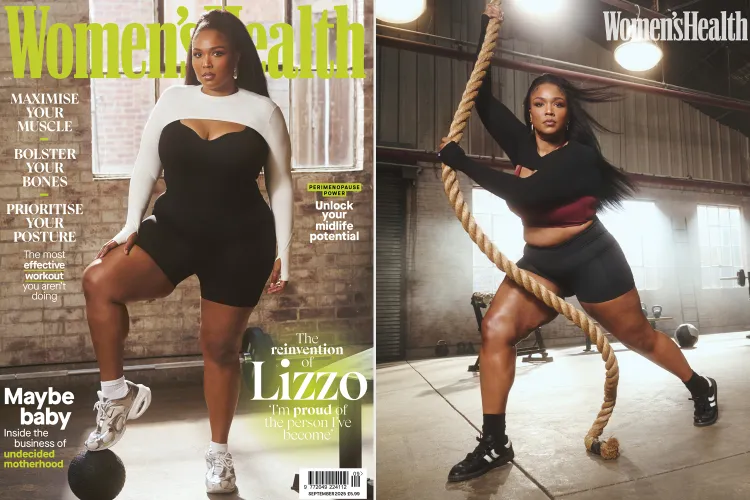Lizzo Reflects on Her Weight Loss Journey While Reaffirming Radical Body Positivity
- Aug 5, 2025
- 3 min read
5 August 2025

In a deeply introspective interview with Women’s Health U.K. featured in their September issue, Lizzo opens up about her four‑year weight loss journey, emphasizing that although she now carries less weight she still proudly identifies with her body’s natural shape and size, describing herself as "just a smaller version" carrying the same belly and thighs she always has while still wearing plus size clothing. She stresses that body positivity is not about staying the same but the radical act of daring to exist loudly and proudly in a world that has historically told women like her they shouldn’t exist.
At 37, Lizzo says she has learned to disentangle emotion from food and reframe her relationship with her body and wellness. She recounts battling emotional and binge eating during stress periods until she found a "beautiful balance" where enjoying food no longer involved overindulgence. Earlier this year, she shared that she had achieved her “weight release goal” after reducing her BMI by 10.5 and lowering body fat by 16 percent, a milestone she addressed candidly on social media and in interviews.
Despite the physical transformation, Lizzo remains firm that her identity as a plus‑size woman and an advocate for body positivity has not changed. She openly acknowledges that her self-esteem does not rest on passing size standards or conforming to beauty norms. Lizzo stresses that radical body acceptance isn't tied to measurement it’s about self‑love, resilience, and presence regardless of size.
Throughout her transformation Lizzo has rejected speculation that she relied on pharmaceuticals like Ozempic for weight loss. She confirms that she experimented with popular GLP‑1 medications but ultimately felt her physical and mental well‑being improved more through mindful eating and balanced meals. She pivoted from a vegan diet high in fake meats and carbohydrates to incorporating whole foods like fish, chicken, and beef, which she says helped her feel satisfied while reducing daily calorie intake naturally.
Lizzo also sheds light on the emotional labor behind the physical changes. She recounts moments when binge eating caused physical pain and emotional shame, followed by a commitment to therapy and healthier habits. She now avoids distraction eating and focuses on being present with herself. Her message emphasizes self‑compassion, saying that weight release is acceptable and that gaining or losing weight over time should never alter one’s right to self‑respect and joy.
She underscores that growth and change are not betrayal. Lizzo reflects on public scrutiny accusing her of abandoning body positivity, stating that the journey toward health often demands growth and evolving identity. She remains unapologetic, saying critics can’t shame her for becoming healthier or for seeking balance, and reminding fans that shifting bodies don’t erase their inherent worth.
Lizzo’s narrative arrives amid broader conversations around self‑image and wellness in the celebrity sphere. Fans remember her early advocacy her anthem "Truth Hurts" and her visible embrace of plus‑size representation yet within her evolution she asserts continuity of principle. She repositions body positivity to include transformation, saying it sized not by shape but by authenticity and visibility in every chapter of life.
Her interview also candidly addresses criticisms from both sides those who declare she has abandoned her message and those who wrongly assume she used shortcuts. Lizzo rejects both extremes. She advocates a middle path: bodies change, self‑love endures, and health can coexist with confidence. By reframing her journey through lens of intention and self‑ownership she challenges the false binary that you must choose either activism or transformation.
In the end Lizzo’s story is both radical and relatable. She remains larger than life in presence, even as her physical form scales back. She urges others to pursue health their way embracing therapy, moderation, and accountability without forfeiting pride, dignity, or belief in their own beauty.



Comments